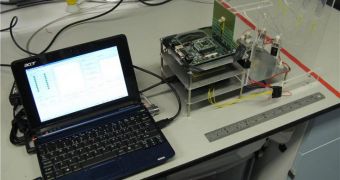Experimentation forms the basis of modern science, and researchers at the University of Southampton may have just developed a way to innovate the way this process takes place.
Experts from the School of Electronics and Computer Science (ECS) at the university recently won an award for developing a type of artificial intelligence that is capable of providing directions on how experiments should be carried out.
The winners are University of Southampton PhD students Chris Lovell and Gareth Jones, who received the Carl Smith Award for best student paper on Friday, October 8.
They were participating at the thirteenth international conference on Discovery Science, which was held in Canberra, Australia, between October 6-8, AlphaGalileo reports.
“Experimentation is expensive. Scientists always want to learn as much as they can from the smallest number of experiments possible,” explains Dr Klaus-Peter Zauner.
“The new techniques we have developed try to address this problem,” adds the expert, who holds an appointment with the Engineering of Natural Systems Group at ECS.
The expert was in charge of supervising the research effort, as part of a Microsoft European Fellowship. Chris Lovell developed the innovative AI system.
What the technology does is mimic the experimentation techniques that were used successfully by human researchers in past experiments.
It does this by taking an wider look at the scientific data available on a particular subject, and it then constructs hypothesis on the connections that may underlie a phenomenon.
The next step is selecting what type of experiment is best suited to test the hypotheses it derived. All of this takes place without any human interaction whatsoever.
“Biological experimentation can be error prone,. Measurements taken may not always be representative of what actually happens,” Dr Zauner adds.
“Our system tries to detect erroneous data, so it can ignore it,” he explains, saying that the new AI experimenters can question if the data it derived is correct or not.
A possible way to use the new system is by connecting it to an automated, computer-controlled platform that would be capable of performing microscale experiments, such as for instance with microfluidic devices.

 14 DAY TRIAL //
14 DAY TRIAL //